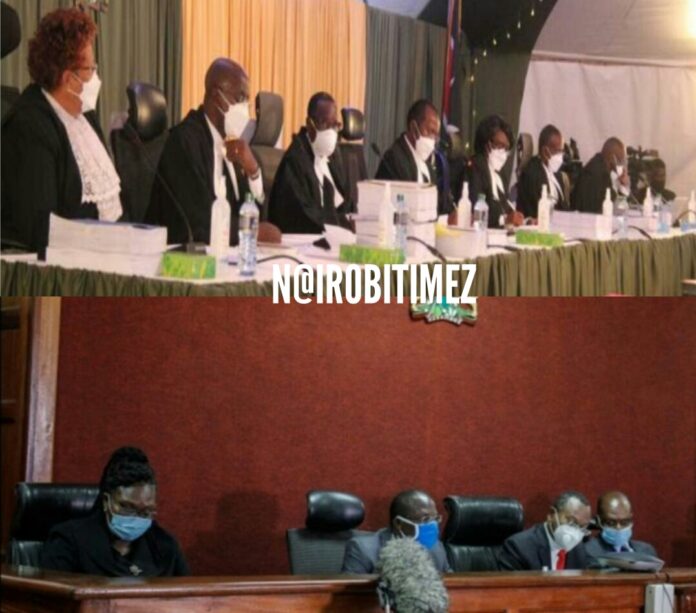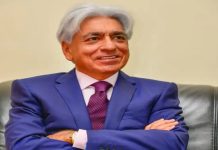BY SAM ALFAN.
Last year, the High Court made a landmark decision by extinguishing plans by President Uhuru Kenyatta and his supporters to amend the constitution through a popular initiative.
President Kenyatta’s bid came a cropper when a bench of five judges ruled that the President had no powers to push for the amendments through a popular initiative.
In a 785-paragraph judgment, the judges said the amendment bill, popularly referred to as the Building Bridges Initiative (BBI) was illegal and unconstitutional. The decision was upheld by the Court of Appeal in a majority decision.
In his bid, President Kenyatta and ODM leader Raila Odinga, the proponents of BBI argued that the changes were meant to make the country’s politics more inclusive.
After going round the country collecting views, the bill sailed through Parliament, albeit with little resistance. County assemblies hurriedly passed the bill, after the members were promised car grants.
But all the efforts that had gone into the push for the amendments of the constitution were thwarted when judges of the High Court quashed the proposed changes and indicted President Kenyatta for his bid to illegally amend the supreme law.
“A declaration is hereby made that the president does not have authority under the constitution to initiate changes to the constitution, and that a constitutional amendment can only be initiated by parliament through a parliamentary initiative under article 256 or through a popular initiative,” said the judgment.
The ruling stated that “Court proceedings can be instituted against the president or a person performing the functions of the office of president during their tenure of office in respect of anything done or not done contrary to the constitution,” the ruling stated.
The five judge bench further stated that Article 257 of the constitution required all questions submitted differently as referendum questions to the people.
According to the bench, binary choices fail to capture views of the electorate as some will be for or against. Article 251 of the Constitution amendment act and 256/257 stipulates that each amendment be considered on its merit.
“The crafters of the Constitution were alive to the fact that a Bill may propose different views which might be accepted or rejected by the voter. In our scenario, binary choices are not permissible as they lead to confusion and deny the voter right of choice,” the judges said.
The bench declared as unlawful and unconstitutional for the BBI steering committee to direct IEBC on its functions, set criteria for the process, and impose timelines on the process while ignoring the fundamental principle of public participation.
“IEBC is an independent commission and cannot be subjected to any influence by any authority. The procedure therefore used in the addition of the 70 extra constituencies is an attempt to amend the constitution by stealth,” the judges said.
The judges also held that IEBC was not properly constituted to carry out its mandate as it needed at least five commissioners to have a quorum.
“A referendum cannot be determined by an organ that is not properly constituted. We conclude that IEBC did not have the quorum at a time it made and therefore all decisions made were invalid, null and void,” the judges pronounced themselves.
Undeterred, President Kenyatta, IEBC, Odinga and Attorney General moved to the appellate court where a seven judge bench upheld the decision of the High court.
The Court of Appeal, being the second highest court in Kenya was heavily critical of President Kenyatta and IEBC and issued a permanent injunction from processing the Bill or subjecting it to referendum.
The judges also upheld the High Court’s finding that the President has no authority to promote amendment of the constitution.
The appellate court also ruled that adequate public participation was not conducted. Justice Kiage stated that, ` County Assemblies did not involve resident citizens in their counties. Some assemblies passed the Bill in a matter of days.
The Attorney General has since moved to the Supreme Court seeking to overturn the judgement.
Will Supreme court uphold the decisions of the two courts below? Only time will tell.







